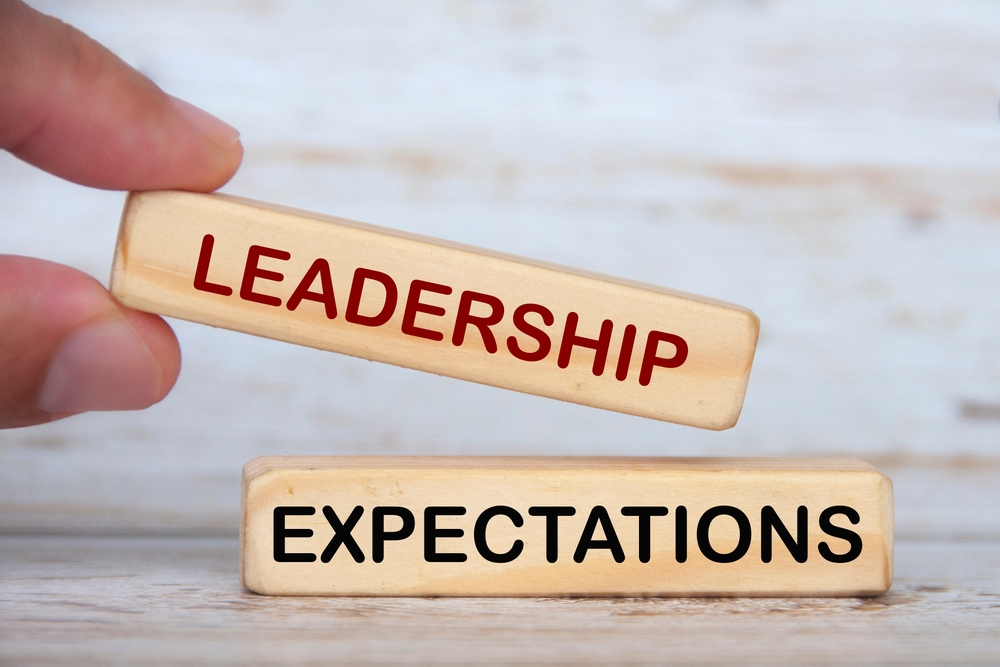In business it’s important to check your reality regularly; to review your financials, your sales, your progress toward goals. It’s also important to periodically reflect and review your expectations. Look at the expectations you hold for yourself, for co-workers, team members, and customers, and how those expectations affect your desired outcomes.
Expectations of Yourself: It’s easy to get into a routine of doing the same things over and over (and for some systems and processes this is a strength.) We set ourselves up for success or failure by what we think, say, and do. These actions and patterns become habits and can become an obstacle to innovation if they go unchecked for too long. If you expect success, you are far more likely to achieve it, especially when you define how you measure success. Here are some thoughts to keep in mind:
- Take stock of your regular thoughts and beliefs about your role as a leader. Notice if your thoughts are in line with what you want to achieve. Are you setting yourself up for success or failure? Do you believe in yourself? Pay attention to how you think about your leadership style and the words you say about and to yourself. Too often, these thoughts run unconsciously, all day long, so take time to see what you really expect of yourself. Mike Dooley says, “thoughts become things, so choose the good ones.”
- Aim high – reach for stretch goals and expect success. Don’t settle for less than you have worked for or for playing too small. Remember, nothing stops you but you, so get out of your own way and aim higher.
- Intention-setting Tool: use expectations to forecast where you are going, to play BIGGER, and generate more of what you desire. Make a list of what you expect for yourself including growth areas you have not yet achieved. Create your list, write it down, and review it regularly.
Some examples of expectations as intentions you could hold for yourself include:- to deliver above & beyond what’s expected by your team
- to be on time and on-budget
- to provide a high standard of service
- to collect input from and engage your team members
- to meet and surpass your monthly goal
- to have more fun, joy, and fulfillment (what does that look like to you?)
Expectations of Others: We can impact how others see themselves by our expectations too, whether we realize it or not. A friend’s daughter was struggling to learn reading in the traditional classroom teaching style, which affected her overall studies and grades. When she began receiving instruction using a better fitting teaching method, her reading improved. Interestingly, her grades did not improve until her parents realized they needed to raise their expectations of what she could achieve. Unconsciously, they had adjusted to her earning mediocre scores for the first few years of school. After their ‘aha’ moment, they voiced their belief in their daughter that she had the tools and the drive to do better. When she realized her parents and her teachers believed in her, she began to believe in herself too. She raised her grades and her confidence.
Team members and co-workers need this too. Let them know you believe in them. Let them know you expect great results because they work hard and have experience. Remind them that is why you hired them. Voicing high expectations can be used as a teaching tool as well. The best leaders let team members hear their trust and belief in them, while also communicating if there is room for improvement. A phrase like, “I chose you to lead this project because I know you have the experience and the skills to do a great job. Your work on the last project was stellar, which is why I cannot accept the missed deadlines. What do you need to get back on track?” Having a conversation like that with a team member can make a big difference because you are letting them know you expect great things from them while also giving direct communication about areas for improvement. This example gives specific feedback and provides a starting place for improvement.
While you are regularly checking the reality of your progress and the state of your business, be sure to assess your expectations of yourself and of those around you. Your awareness of those expectations can provide important guideposts to growing as a leader and supporting your team’s growth. Direct communication and feedback about what’s expected is a key component to getting where you want to go. The act of intentionally directing your expectations can be a beneficial addition to your leadership toolbox.
Let me know how this resonates with your leadership experience and what you and your team are working on.
I help leaders improve cohesion, collaboration, and connection within companies, organizations, and communities. Reach out to me for more information about bringing your team together for effective communication and facilitated safe conversations.

